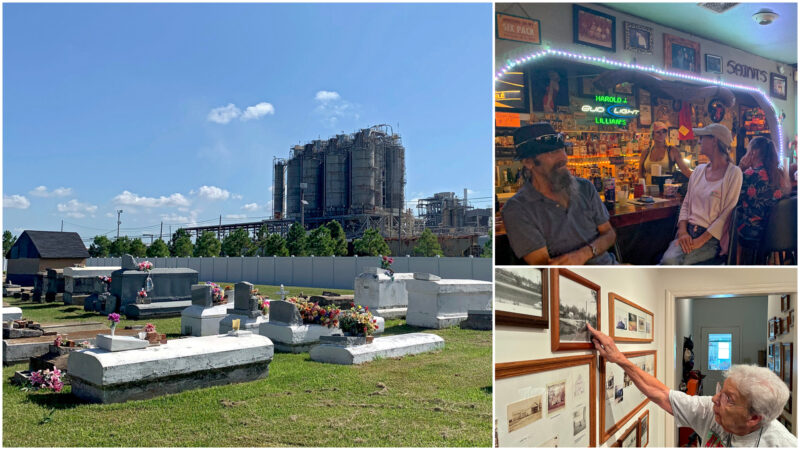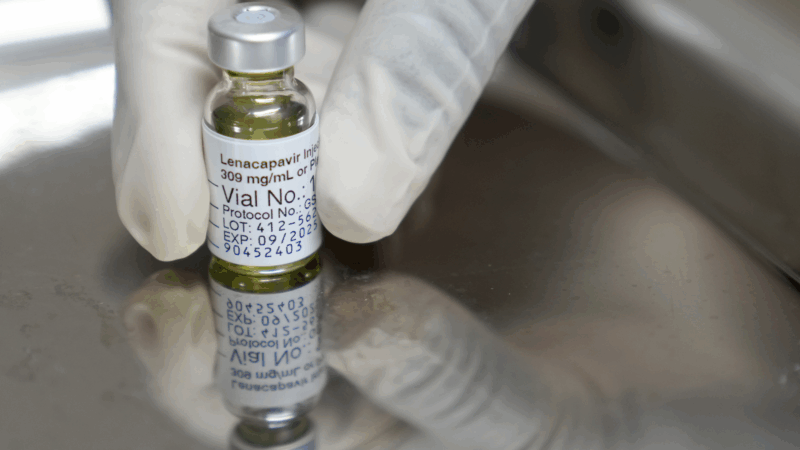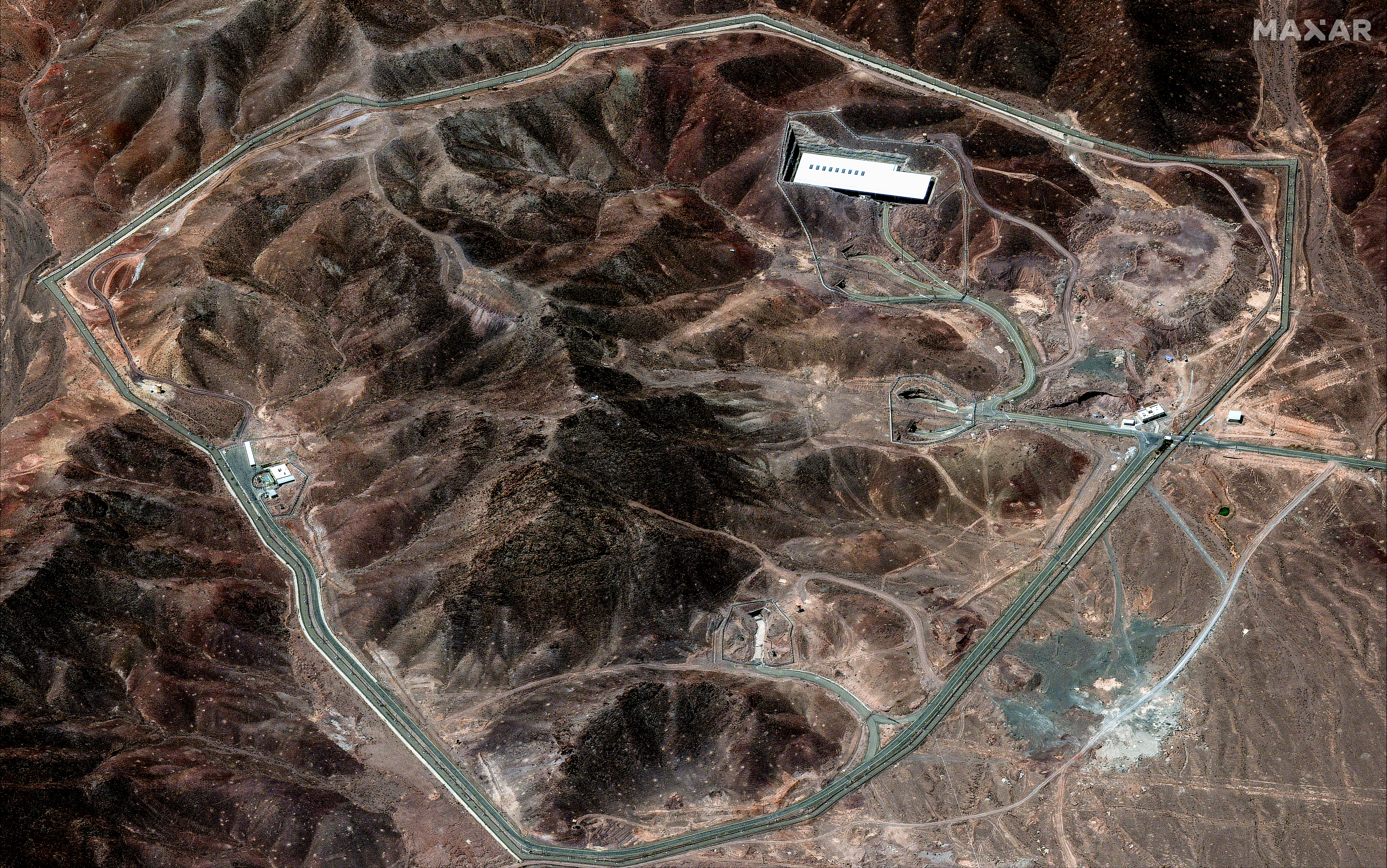Place, Erased: A look at Gulf South communities transformed by forces beyond their control
The “Place, Erased” series focuses on three towns and communities devastated by natural or man-made environmental shifts in the Gulf South: Revilletown, Louisiana, Clermont Harbor, Mississippi, and Easonville, Alabama.
Drive throughout the South and you’ll encounter towns that have been erased. Places that were once full of culture and community are devastated, and in some cases wiped off the map entirely, after major environmental shifts — some natural, some man-made.
In a three-part series, Gulf States Newsroom reporters Danny McArthur and Drew Hawkins traveled across Alabama, Louisiana and Mississippi to examine the journeys of these towns.
Easonville, Alabama: Lessons from a drowned town
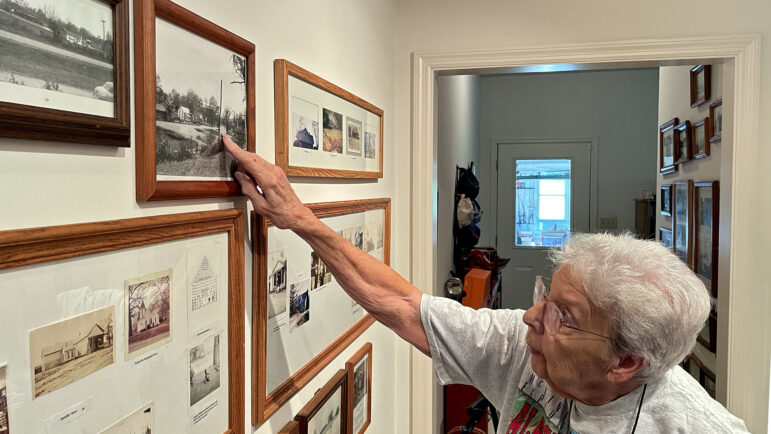
Easonville, Alabama was a rural, but thriving, town until an Alabama Power project drowned it to create the Logan Martin Dam.
Sixty years later, residents living near an Alabama mountain faced the same threat. In both cases, the project was touted as a potential green energy source.
Danny McArthur speaks to residents from both communities to determine the overlooked cost of progress in these man-made environmental shifts.
Read More: Place, Erased: How a drowned Alabama town still holds lessons 60 years later
Revilletown, Louisiana: Toxic neighbors
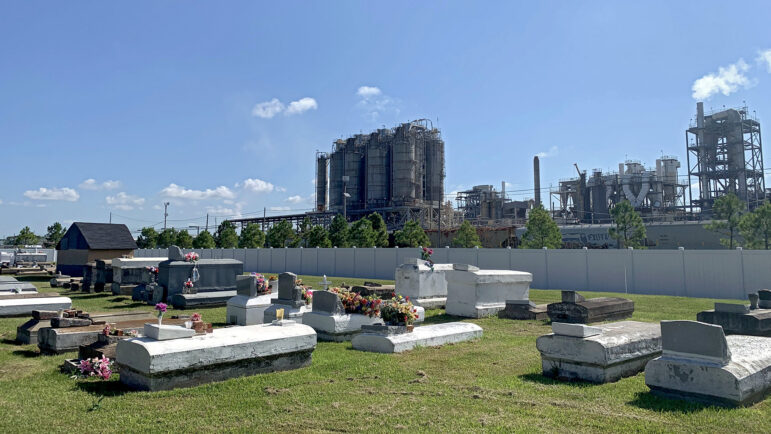
When industry brings toxic pollution to town, Black residents are often in the cross hairs for relocation.
The residents of Revilletown in Southeast Louisiana found themselves in this situation after a chemical company moved in next door to take advantage of the area’s resources. For decades, Revilletown was a close-knit community with about 100 or so residents. But by 1987, enough toxic pollution forced the residents to relocate.
But Revilletown’s story did not end there. Drew Hawkins details the yearslong legal battle over who owns the town’s cemetery.
Read More: Place, Erased: The fight for the remains of a Louisiana town
Clermont Harbor, Mississippi: Ghost town or not?
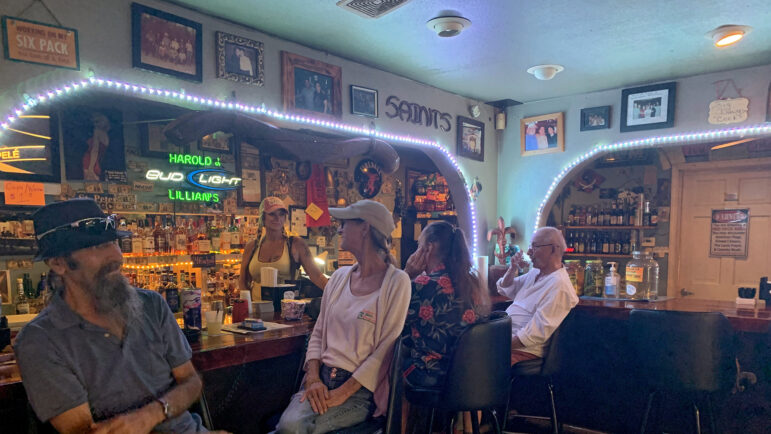
When is a ghost town actually a ghost town?
That question lingers over Clermont Harbor, Mississippi, an unincorporated town along the Mississippi Gulf Coast that technically doesn’t exist anymore —the town has been wiped off most maps in the years following Hurricane Katrina.
But, Danny McArthur talks to the residents who have kept the community alive in the face of climate change.
Read More: Place, Erased: Is this Mississippi community really a ghost town? It depends on who you ask
This story was produced by the Gulf States Newsroom, a collaboration between Mississippi Public Broadcasting, WBHM in Alabama, WWNO and WRKF in Louisiana and NPR.
Screen addiction and suicidal behaviors are linked for teens, a study shows
The study, published in JAMA, followed teens for years and evaluated addictive behaviors, as well as suicidality.
Trump administration cuts specialized suicide prevention service for LGBTQ+ youth
The 988 Suicide and Crisis Prevention Lifeline included a service that provided specialized suicide prevention support by phone and text for LGBTQ+ kids. That's ending.
HIV prevention drug hailed as a ‘breakthrough’ gets FDA approval
A drug called lenacapavir, administered in two injections a year, offers protection from HIV comparable to daily pills. One looming question: Will it be affordable for lower resource countries?
If a U.S. ‘bunker buster’ hits a nuclear site, what might get released into the air?
So far, strikes on Iran's facilities have created limited chemical and radiological hazards. Experts say that's not likely to change even if the U.S. uses a big bomb.
Pro-Trump media figures split over the U.S. role in the Israel-Iran conflict
Many of President Trump's nominal media allies are breaking with him over his backing of Israel, arguing it will lead to a wider war.
Karen Read’s second murder trial ends with an acquittal
Read was accused of hitting her boyfriend with her car and leaving him to die in a snowstorm, but alleged she was the victim of a cover-up by his fellow officers. Her 2024 trial ended in a hung jury.

